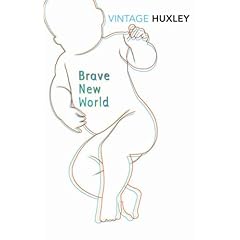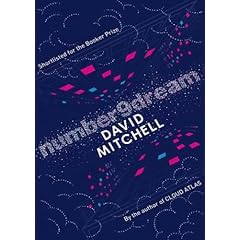 I bought this book very hesitantly. I’m wary of bestsellers, and the way everyone was bigging this up, I was sure this would be a repeat of The Da Vinci Code or The Kite Runner - two books everyone I know loved, but I could barely get through them. For once, I was pleasantly surprised.
I bought this book very hesitantly. I’m wary of bestsellers, and the way everyone was bigging this up, I was sure this would be a repeat of The Da Vinci Code or The Kite Runner - two books everyone I know loved, but I could barely get through them. For once, I was pleasantly surprised.
The book follows the story of Ram Mohammed Thomas, an eighteen year old waiter, whose extraordinary life has led him to win a billon rupees as part of a quiz show: Who Will Win A Billion? An eighteen year old who has lived in Mumbai, Delhi, and Agra; who has learnt how to survive and look out for himself; who has worked for a famous Bollywood actress; who always looks to protect people - truly an extraordinary boy. The producers of the show don’t have enough dough to actually pay the winner, so they accuse him of cheating, in order to escape paying him money they don’t have. Quoting the book: He’s never been to school. He’s never even read a newspaper. There’s no way he could have won the top prize.
The book itself, is divided into twelve chapters, which detail twelve incidents of the protagonist’s life which lead him to correctly answer the twelve questions on the quiz show. The irony is, the author doesn’t know what the capital of America is. He doesn’t know what the capital of France is. Yet, he knows what the capital of Papua New Guinea is (to be honest, even I didn’t know what it was before reading the book). It does seem surreal. He does get a lucky break in the second question, where he doesn’t know the answer but the host of the show helps him out. Ram (or if you like, Mohammed. Or, if you like Thomas. The protagonist adopts whichever name is most apt for the situation all the time, anyway) relies on a keen memory (and luck) to take him all the way. As they say, quizzes aren’t as much tests of intelligence, as they are tests of memory. And as the book ends, Luck comes from within.
The social implications of this book are equally important, in my opinion. Of course, there are subtle hints surrounding identities of various cricketers and Bollywood stars (two of the primary obsessions of the billion people that occupy India) who are referenced in the book; some of whom are directly named. But, it takes it a few steps further. There’s this one quote, that resonated in my head long after I had finished the book: We Indians have this sublime ability to see the pain and misery around us, and yet remain unaffected by it. I think that pretty much sums it up (to be fair, it’s true for most of the world). While reading the book, we witness incidents of incest, pedophilia, prostitution, petty thievery, exploitation of the poor and unfortunate by their class counterparts, espionage, betting and god knows what else. Stories of rich people dismembering/blinding children and turning them into beggars, of dacoits robbing trains, and of people turning a blind eye to social no-nos happening in their own neighborhood are descriptive, believable and well told.
It also highlights the attitude of the poor, where their ambitions are not to be a doctor or a lawyer, or someone rich. Instead, they want to be like the elders around them: wardens, cooks, cleaners etc. They have attributed the glitz and glamor of the Bollywood world to a place that doesn’t really exist, and they’re convinced it’ll never be them who have so much (money, cars, big houses). The key for most people afflicted with the disease of poverty, is survival, or making the most of what they’ve got, instead of harboring unrealistic dreams. Even when Ram’s robbed on the train and loses all his money, he runs away and starts from scratch, without dwelling too much on all he’s lost.
The book is simple, unpretentious and genuinely feel-good. It’s easy on the eyes, fast-paced and interesting. The protagonist is a likable realistic character, and you can’t help but sympathize and empathize with him.
Overall, I’d say a 7 on 10.
 I saw this book in a WH Smith in Euston, and bought it immediately, being a huge fan of Mary Higgins Clark. Why, and how is this relevant, you ask? Well, because I normally don’t buy books from WH Smith, let alone the ones in Euston, where the queues are so long that by the time it’s my turn probably three of my trains have come and gone. However, the prospect of reading a new suspense thriller was enough to convince me that the wait in the queue would be for the greater good.
I saw this book in a WH Smith in Euston, and bought it immediately, being a huge fan of Mary Higgins Clark. Why, and how is this relevant, you ask? Well, because I normally don’t buy books from WH Smith, let alone the ones in Euston, where the queues are so long that by the time it’s my turn probably three of my trains have come and gone. However, the prospect of reading a new suspense thriller was enough to convince me that the wait in the queue would be for the greater good. A book set in the future, but has a title inspired by Shakepeare’s The Tempest, Brave New World details a dystopian society. However, if you’re expecting to see shades of Orwell’s 1984, you’re in for a surprise. On the other hand, there are some small comparisons that can be made with Bradbury’s Fahrenheit 451, another dystopian world, where literature is banned. Of course, this is where the similarity ends.
A book set in the future, but has a title inspired by Shakepeare’s The Tempest, Brave New World details a dystopian society. However, if you’re expecting to see shades of Orwell’s 1984, you’re in for a surprise. On the other hand, there are some small comparisons that can be made with Bradbury’s Fahrenheit 451, another dystopian world, where literature is banned. Of course, this is where the similarity ends. Although really difficult to read at times, as the book continuously drifts between fantasy and reality, this book was thoroughly enjoyable. While it’s the first book I’ve read by Mitchell, it definitely won’t be the last.
Although really difficult to read at times, as the book continuously drifts between fantasy and reality, this book was thoroughly enjoyable. While it’s the first book I’ve read by Mitchell, it definitely won’t be the last. You have to love the name of the book. That was reason enough to pick it up! Androids, and electric sheep. What could possibly make more sense? Seriously, the name of the book intrigued me enough to pick it up, just to see how bizarre sci-fi could get. It’s not as bizarre as it sounds, if it helps...
You have to love the name of the book. That was reason enough to pick it up! Androids, and electric sheep. What could possibly make more sense? Seriously, the name of the book intrigued me enough to pick it up, just to see how bizarre sci-fi could get. It’s not as bizarre as it sounds, if it helps... A young boy, with the help of a prison guard, escapes from a concentration camp and tries to find his way to Denmark. David is convinced that there is some kind of catch, and there will be people waiting to catch him, punish him and throw him back in the camp, at every point during the initial stages of the escape. Only then does he start believing he can actually escape, and leave the horrors of the concentration camp far behind.
A young boy, with the help of a prison guard, escapes from a concentration camp and tries to find his way to Denmark. David is convinced that there is some kind of catch, and there will be people waiting to catch him, punish him and throw him back in the camp, at every point during the initial stages of the escape. Only then does he start believing he can actually escape, and leave the horrors of the concentration camp far behind.